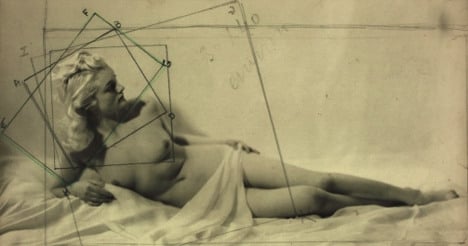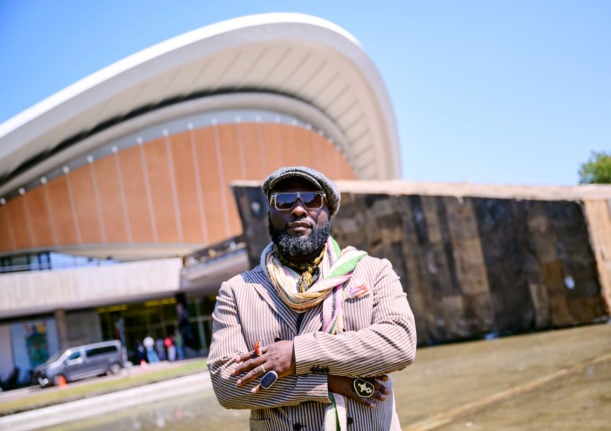A French publishing house reacted with anger on Friday after learning that US tech giant Apple had banned the one of its authors books its online store, because the cover was apparently too risqué.
The novel in question is La Femme (The woman) by French author Benedicte Martin, which contains the cover image of a naked woman shaped into a knife.
“The American company believes that the cover of Benedicte Martin’s book is ‘inappropriate’,” said Olivier Frébourg, the boss of publishers Les Editions des Equateurs.
Frébourg told The Local that "it's extraordinary in the year 2014" that this kind of "censorship" can happen. He was concerned over the economic impact that bans such as this can have on authors and publishers.
The company is so infuriated by what it sees as an “act of censorship which acts against the liberty of creation”, that it has called on France’s Minister of Culture to intervene.
A member of staff at Les Editions des Equateurs insisted that the image on the cover by the artist Stéphane Rozencwajg was not pornographic and "not even sexual".
“It’s an original creation. It's not even a real woman, she doesn’t exist. It’s not sexual, it’s a surrealist creation by an artist, to show perhaps that a woman can also be dangerous. The book itself is not pornographic either.
“It’s ridiculous they ban this but not Fifty Shades of Grey, which contains vulgar and pornographic content."
“Obviously it’s the woman’s breasts that they see as inappropriate. But come on, we see them all the time. It's very puritanical and also show the power Apple has.”

Les Editions des Equateurs claim that it is not the first time the internet giant has banned the online sale of a book because of the cover.
Apple did not respond to a request for comment by the time of publication.
It is also not the first time that the French arts world and a US internet giant have clashed over nudity.
In March last year The Local reported how French art-lovers were outraged when Facebook blocked the page of a Parisian art gallery for 24 hours after a photo-study of a nude posted there was deemed by the social network to be in violation of community standards.

That prompted a campaign by French Facebook users to bare all in protest at the site’s strict censorship. The “Day of Nude” protest was soon nipped in the bud when Facebook’s photo police took swift action.



 Please whitelist us to continue reading.
Please whitelist us to continue reading.
Member comments